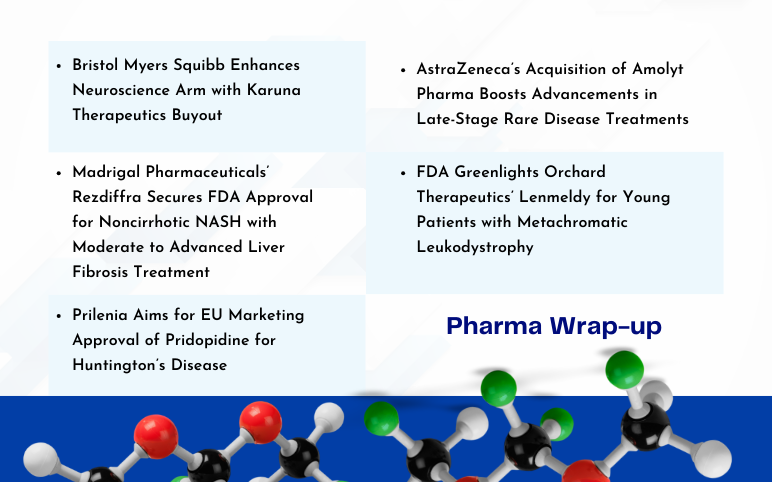Huntington’s disease is an incurable genetic disorder that causes the progressive breakdown of nerve cells in the brain. It is caused by a defect in a gene present on chromosome 4 that causes an excessive build-up of the Huntington protein. This protein build-up ultimately defaces nerve cells in parts of the brain, affecting neurological function, leading to Huntington’s disease. Symptoms of HD vary from person to person, even within the same family usually appearing between the ages of 30 to 50.
As per Huntington’s disease Society of America estimates, there are approximately 30,000 Americans, expressing symptoms of Huntington’s disease and more than 200,000 are at risk of inheriting the disease from their parents.
Huntington’s disease therapy revolves around symptom management and supportive care to order to improve the quality of life, i.e., the approved treatments mainly focus on managing the symptoms of the disease. Austedo (Drug: Deutetrabenazine, Company: Teva) and Xenazine (Drug: Tetrabenazine Company: Prestwick Pharmaceuticals) have been approved by the FDA for the treatment of chorea associated with Huntington’s disease. Xenazine has also received an orphan drug designation from the FDA. About half of the patients affected by Huntington’s disease suffer from major depressions that too from the very beginning of the onset of the disease.
Origins of Depressive behaviour
A recent study published in the journal Biological Psychiatry sheds lights on how an alteration in the function of an enzyme Cdk5 kinase can be a cause of associate depressive behaviour. According to this study, Cdk5 kinase is a vital protein for normal neural functioning. This kinase is essential in the expression, distribution and localization of the NMDA receptor family, in the physiology of the nervous system, and the modelling of the synaptic plasticity and learning and memory processes. The main aim of the research was to study if the reduction or interruption of the function of Cdk5 kinase could lead to therapeutically benefits in the treatment of depression in Huntington’s. It was also revealed that the depression from Huntington’s disease is different from other depression disorders and conventional anti-depression therapies like serotonin or monoamine can worsen the condition. Since Cdk5 kinase is actively taking part in several cell processes, if targeted directly, can lead to unwanted effects in other physiological pathways. So, it requires a proper method to define how Cdk5 kinase leads to depressive-like phenotype.
Researchers are now finding for how long this use of Cdk5
kinase for preventive measures, so as to reverse the associated depression to
previous stages, can last. Also, if alteration in the protein, alongside with
suppressing depressive behavior can in any way affect cognitive disorders.



